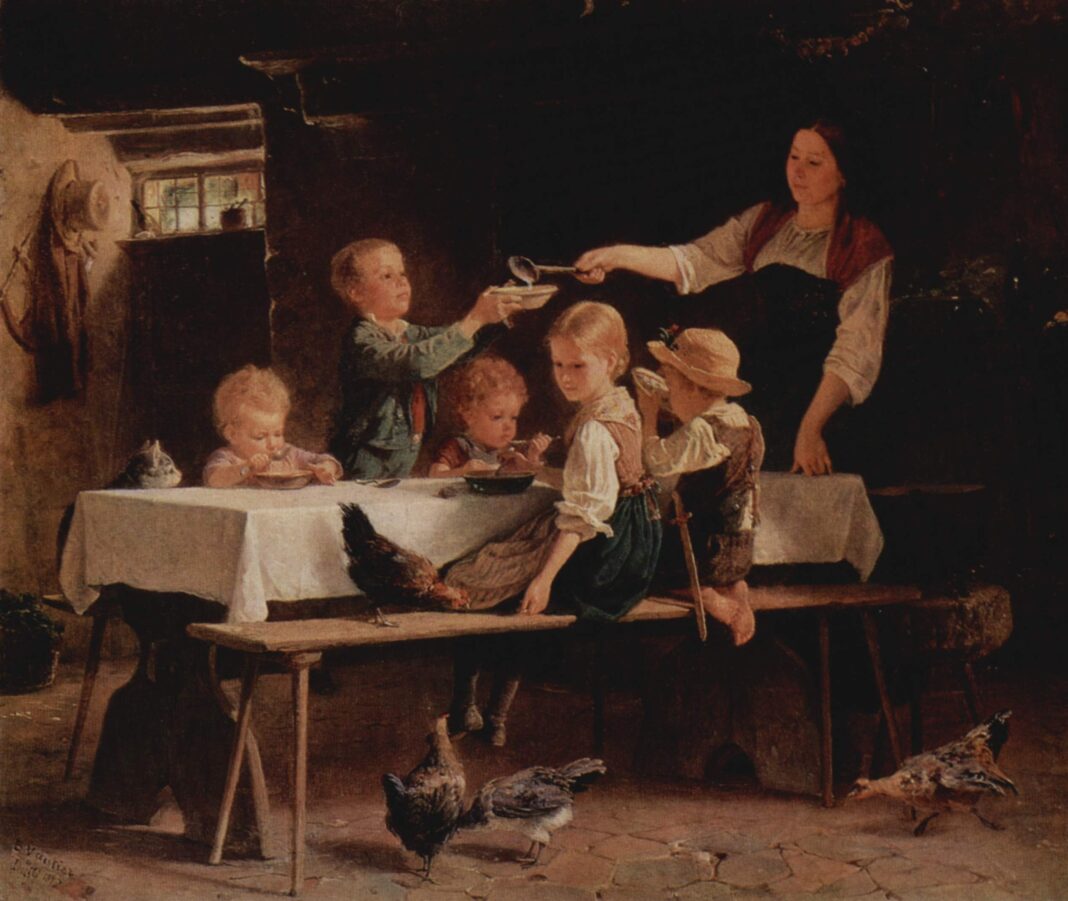For years now, without fail, every graduation season I gift a crockpot to a recent graduate just starting a new job. Why? Because many college graduates these days, male and female alike, are missing a basic life skill essential for successful adulting: cooking. Few things seem to inspire as much dread in many otherwise accomplished adults with all kinds of fancy strings of letters after their name (B.A., M.A.T., M.B.A., J.D., M.D., Ph.D.) as the prospect of making dinner night after night.
To be fair, I used to be like them, so I can see how it can happen. Growing up, I regularly helped my mom with cooking tasks—mostly of the sous-chef variety (chop, dice, stir). But once I moved out on my own and was in charge of feeding myself, a curious realization dawned: yes, I had spent years assisting in the kitchen. But all I knew to do was one or two steps of every recipe. I had never ushered a dish from that initial step of raw ingredients to its successful conclusion. Also, most of those recipes that my mom made were quite complex and not the sort of thing I was going to be making for myself on a regular basis (hello, Russian bliny or golubcy). Still, one cannot live on sandwiches alone. And sure, the American take-out culture is going stronger than ever, but do you really want to do that in this economy? Besides, while healthy choices, including salads, are now ubiquitous, does anyone really hit the McDonalds drive-through for a salad?
One easy solution is the crockpot. Why? You can throw in some basic ingredients in the morning before work or school, and then when you get home in the evening, you have a hot meal waiting. Bonus: the house will smell really good when you walk in. What’s not to love?
I think of the crockpot as the best cooking hack for the culinarily inept and/or extremely busy—this in and of itself is already enough, perhaps. But history adds another wonderful dimension to the story of the appliance and the foods it cooks. The earliest slow cookers were used by Eastern European Jewish cooks seeking to keep the Sabbath—a day when all work was, of course, forbidden, but special dishes were expected to be served nevertheless. In spite of the prohibition on all work, including cooking, the Sabbath was no Sabbath without a delicious multi-course meal. And so, cue rich and hearty slow-cooked stews and casserole-type concoctions.
Of course, you can make more quotidian things in the crockpot as well—my kids love the macaroni and cheese recipe I make semi-regularly. I consider it an appropriate cousin to the noodle kugels of my Eastern European Jewish ancestors. And every Thanksgiving, I make a hashbrown casserole recipe that everyone loves. Both dishes are, really, nothing but a humble ode to butter and cheese. But there is something about soups and stews as comfort foods that really hits home and reminds us that while we must feed our bodies to survive, food can do much more than that; certain foods lift our spirits up too. It is no accident that the last two people to whom I’ve sent a crockpot reported using it to make chicken and dumplings and white bean chicken chili as their respective first dishes in the appliance.
As I reflect on the slow cooker as the quintessential Sabbath appliance, I am struck by ways the stresses of our pressure-cooker culture have shaped the way we cook—or, as statistics say, more often don’t. Indeed, a provocative piece in 2017 claimed that “90% of Americans don’t like to cook.”
A plethora of meal-kit services, whether those available nationwide, such as Hello Fresh or Blue Apron, or those that many local grocery stores offer, try to resolve this very problem. Their success in the market suggests that they are meeting genuine demand. All ingredients are pre-chopped, pre-measured, pre-packaged. Instructions ensure that even the most culinarily uninspired can make this dish, and it will taste good. But, it appears, it is not just the lack of culinary comfort that impedes many from making dinner; harried life rhythms, especially for families where both spouses work, play their own part too.
Many families do not sit down to dinner together every night. And, again, even those who do might not have cooked their meal at home. Frankly, I can’t blame those tired, frazzled fellow-parents or my recent-college-graduate friends and former students. I wonder if it’s not the dislike of cooking per se for many of them that contributes to the above statistic about the general dislike of cooking in our society. Rather, it is the lack of experience combined with the physical, mental, and emotional exhaustion one feels at the end of a long day of modern work—whether that work is outside the home or is completed from home, perhaps herding and educating children in addition to other tasks. It is a well-documented fact that laundry, for instance, mysteriously reproduces even as we sleep.
The customary exhaustion we feel at the end of a busy day reminds us that our bodies, minds, and souls all need rest, and this is a good thing; even the Creator sought a Sabbath at the end of the first week of the world’s existence. In this light, the idea of the slow cooker providing me and my family with a sort of Sabbath to be together in the evening, even in the midst of a busy week, is a welcome balm for our overworked bodies and souls. I hope the gift of the slow cooker does the same for my friends and former students.
In a world of fast everything, including fast food—often consumed fast, inside one’s car—a slow-cooked meal eaten on real plates, at a table set with cloth napkins, feels nostalgically rebellious and luxurious, even if it is one of the simplest and cheapest of pleasures, costing us less in cash than a drive-through meal. It feeds our bodies but, more important, it offers us needed rest, comfort, and a sense of shared joy on the most ordinary of evenings.
Image credit: via Wikimedia Commons












My grandmother, who was born in 1906 and was of Slovak ancestry, married very young into a large Italian family and thus learned to cook in both ethnic traditions. She died before the slow cooker became popular, but she definitely used what might be considered its ancestor, the Dutch oven, for all sorts of things. It was probably her most used piece of cookware, as you could do almost anything with it. And she was neither hurried nor inept! She loved to cook and bake and was very good at both. Not sure what she would have thought about the slow cooker though. It might have been a little too “hands off” for her.
Comments are closed.